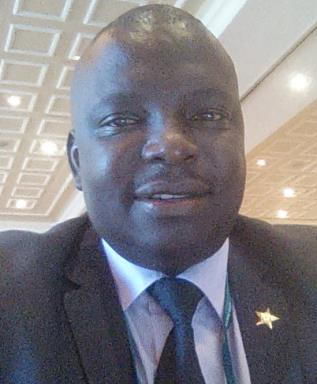Webinar: AI and Library & Information Science Education and Practice in Africa

Image credit: hanindia.com
PUBLISHED: OCTOBER 1 2023 | UPDATED: OCTOBER 16, 2023
Overview
In a rapidly evolving digital era, the fusion of AI and LIS holds immense promise for reshaping the landscape of knowledge preservation, access, and dissemination. What are the opportunities, the challenges and path forward for LIS in Africa in the AI age? Be a part of the conversation by attending the AfLIA LETIS Artificial Intelligence (AI) and LIS Education and Practice Webinar. Whether you are a student, LIS educator, librarian, archivist, or museum professional, this webinar will provide valuable insights and practical guidance on harnessing AI’s power across the African continent.
This webinar delves into four (4) pivotal dimensions that shape the AI-LIS synergy in Africa.
Topical areas for webinar:
🔍 AI and LIS Professional Practice: How is AI being applied in professional practices? Uncover how AI technologies are revolutionising the day-to-day operations of information professional practices. From enhancing user experiences to optimising information retrieval, gain insights into the innovative ways AI is redefining the essence of LIS professional practice.
🎓 AI and LIS Education & Training: How should LIS Schools adapt their curricula to address emerging technologies like AI? What new knowledge and skills will the African LIS workforce need? Explore the dynamic interface between AI and LIS education, in order to equip the next generation of information professionals with cutting-edge skills to navigate an AI-powered future of the field LIS.
🏛️ AI and other Memory Institutions: How can AI help digitise and provide access to cultural artefacts? What are the concerns around AI and digital collections? Delve into the intricate relationship between AI and memory institutions such as archives, museums, and galleries. Learn about how AI-driven preservation and curation strategies could be employed to safeguard Africa’s rich cultural heritage, while fostering new avenues for engagement and exploration.
🔗AI and Library Partnerships on Campus: How are librarians and information professionals contributing both their time and expertise towards the larger AI campus conversations and policy discussions happening at their institutions? Discover how university libraries are collaborating with different departments, committees, and councils across their campuses to develop a toolkit of AI resources for faculty and students, some guidelines and best practices for the use of AI in classrooms, in addition to revisions and recommendations for quality practices.
Join us and our panel of leading LIS educators, practitioners, and tech-enthusiasts from across Africa to foster a collaborative space for dialogue, insights, and inspiration.
Date
Wednesday, 25th October 2023 @12noon UTC | 1pm WAT | 2pm CAT/SAST | 3pm EAT
Registration details
Click on the button below to register. Kindly note that once you register, you will receive reminders about the event. Together, let’s chart a course towards an AI-empowered future for LIS in Africa!
Target audience
- LIS Educators
- Librarians
- Archivists
- Museum professionals
- Students
Resource persons

Dr. Sandy Zinn is an associate professor in the Department of Library & Information Science at the University of the Western Cape, South Africa. Her teaching and research interests include information literacy education trends, green libraries, e-learning, information behaviour, school librarianship, and research data management. She has worked as a public librarian, school librarian and as a curriculum advisor: information literacy, the latter in the government education sector. For the last 20 years she has worked as an academic in higher education. Over the years, Prof Zinn has served in leadership positions in several LIS organisations, both nationally and internationally. She has published widely and served on various journal boards. Her ORCID number is https://orcid.org/0000-0002-0212-0036

Dr. Awudu Karim, is a lecturer at the Department of Information Studies, University of Ghana and also a Course Instructor and Examiner at the School of Continuing and Distance Education, University of Ghana. In addition, he works a part-time lecturer at the Accra City Campus University of Ghana as well. His major areas of interests include natural language processing, machine learning/deep learning, AI in libraries, image processing, and computer vision. Other areas include data processing, data analytics, data mining, data structures and algorithms.He serves as a reviewer for a number of international journals such as Association for Computing Machinery’s Transactions on Multimedia Computing Communications and Applications journal, IET Signal Processing journal, Asian Journal of Research in Computer Science, etc. He has coauthored many publications mainly on machine learning, natural language processing and image processing.Dr. Awudu is currently a member of Topic Selection Committee of the Department of Information Studies and member of the Ghana Library Association.

Dr. Constant Okello-Obura is a Professor of Information Science at Makerere University at EASLIS, College of Computing and Information Sciences. He has served as Head of Department, Dean and Principal of College of Computing and Information Sciences at Makerere University. Has been the Vice Chairperson and President of Uganda Library and Information Association and now Chairperson of IASSIST Africa Chapter and won several awards for distinguished academic and professional services provided. Prof Obura has won several grants that included Internet Solar power for Schools, AgShare- Agricultural Indigenous Knowledge (Digital access and preservation), MIT Carnegie supported project among others. He has widely published in areas of: Business information Systems and services, Knowledge Management; ICT application in Information Science field, Records and Archives Management; Digital presence, Bibliometric studies and LIS Education among others. His research interest is now in the areas of Data Literacy, Data Security and Policy, Information Systems Security, Knowledge Management Systems, LIS Education.

Meredith K. Saba is the Department Head for Access, Research, and Instructional Services in the Hunter Library at Western Carolina University in the United States. Prior to this, Saba was a Faculty Instructor, Reference Librarian, and Departmental Coordinator at the American University in Cairo (AUC) in Cairo, Egypt, and a STEM Librarian at the University of California, Davis before that. Over the years, Meredith has designed and developed both in-person and online information literacy (IL) courses and IL learning assessments for undergraduate and graduate students at different universities. Her most recent project is a newly launched online, 15-week (semester-long) self-paced IL course for first-year students at AUC. At both universities, including her current institution, Meredith has served on Provost-appointed projects and councils, including campus-wide Artificial Intelligence (AI) committees and faculty online forums and discussions that have focused on the use of AI on both campuses, and the resources, policies, and best
practices that have been developed around this.
Technical Requirements
Upon registration, reminders will be sent to all registrants periodically. This webinar will be hosted on Zoom Conferencing Platform. Participants, who do not have Zoom on their mobile devices and or computers, need to download, install and create an account on Zoom ahead of time (CLICK TO DOWNLOAD). Webinar attendees are encouraged to join early, preferably 15 minutes before the start of the webinar, as one may need time launch the application. The speaker will use a webcam to connect with attendees. Audio and video for the session will be streamed over computer speakers. Attendees are therefore encouraged to connect with a headset or earpiece for maximum utility.
Webinar Materials
A list of resources and further information will made be available at the end of the webinar, to enable thorough engagement with the webinar content. All registrants will have access to the presentation slides. The webinar recording will be uploaded on AfLIA Youtube Channel soon after the webinar to facilitate continuous engagement with the webinar content by webinar attendees and non-attendees. Please note that this webinar does not involve certificate of participation.
Queries
For further enquiries and any assistance relating to the webinar, contact us at afliacomm@aflia.net.
